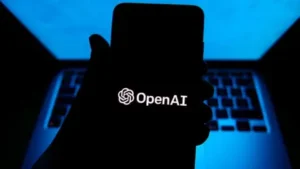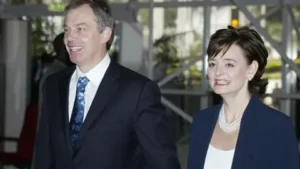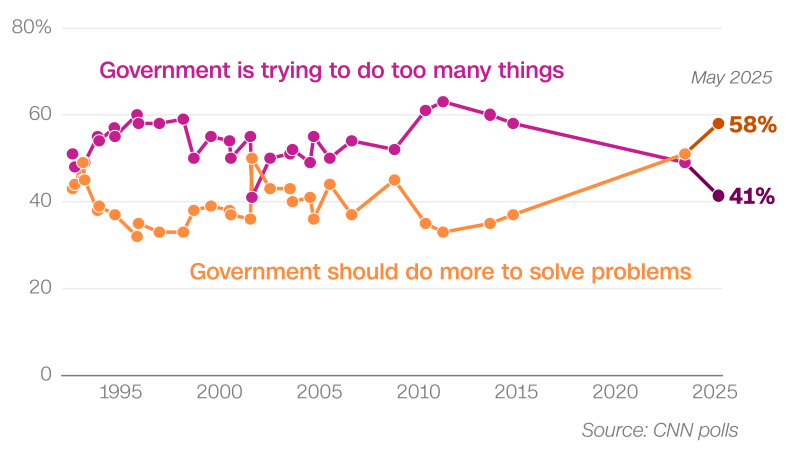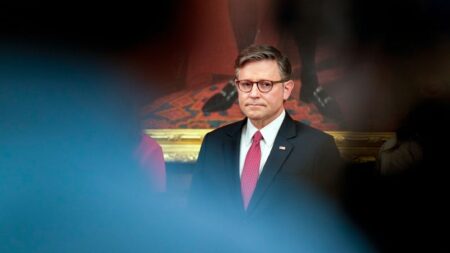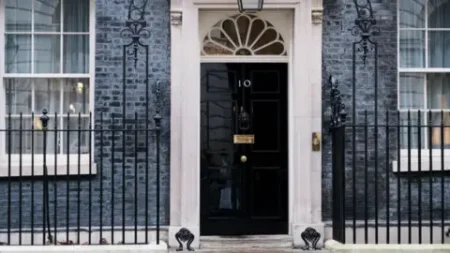In a recent CNN survey conducted by SSRS, the political landscape in the United States reveals an unprecedented level of skepticism towards both the Republican and Democratic Parties. The findings show that the majority of Americans, specifically over 40%, harbor doubts regarding the ability of either party to effectively lead or enact meaningful change. As political sentiments recalibrate during the early months of Donald Trump’s second administration, the poll highlights a significant divide in public perception toward government involvement in problem-solving. Notably, a historical number of Americans now believe that the government should play a more proactive role in addressing national challenges.
Despite the skepticism regarding performance, a substantial segment of the population has noted distinct differences between the two major political parties. According to the survey, a striking 81% of respondents assert that they identify substantial disparities between Republican and Democratic ideologies. This figure marks an increase from previous years, suggesting that a clearer ideological divide is emerging across age, political, and educational demographics. Conversely, a minor 18% of the population perceives the parties as essentially similar, which has decreased from 28% just a year prior, underscoring a shift in political engagement and discernment within the electorate.
However, even among those who acknowledge the dissimilarities between the parties, almost 20% of participants express that neither party adequately represents their views on a variety of issues. This indicates a potential disconnect where many voters, despite recognizing differences, feel unrepresented by the existing political dynamics. When asked to identify which party has the capabilities to “get things done,” showcase “strong leaders,” or embody the “party of change,” more than 40% of respondents believe neither party meets these criteria, reflecting widespread discontent with leadership profiles.
A notable finding from the survey is that 58% of the sampled population argues that the government should intensify its efforts to tackle societal issues—this is the highest level of agreement recorded by CNN in over three decades. Strikingly, while Democratic sentiments on government roles have remained relatively stable, the proportion of Republicans and independents advocating for a more assertive government approach has notably decreased since the change of administration, thus indicating a complex evolution in partisan views.
While both major parties struggle with perceptions of effectiveness, challenges are particularly pronounced for the Democratic Party. Metrics indicate that Republicans are viewed more favorably than Democrats across leadership strength. Specifically, 40% of respondents associate strong leadership more closely with the GOP, while only 16% see similar traits in the Democratic Party. Additionally, Republicans outpace Democrats as the party perceived to be more capable of enacting change, with figures of 36% to 19% supporting this notion.
This sentiment extends to the independents—those who do not align fully with either party—who exhibit even greater skepticism. A staggering 76% of these voters contend that neither party can effectively administer strong leadership or drive impactful change, while 72% express that neither party can embody the attributes of a transformative force.
When examining partisan approaches to pressing issues, the survey reveals that while many Americans view the Republican Party as somewhat effective, a significant number also characterize it as the “party of extremism” by a 41% to 30% margin. This sentiment underscores a complex relationship that voters have with political parties, a feeling further confounded by perceptions of party extremities that appear to be rising within the Republican ranks—especially among its base.
Beyond party performance, the survey unearthed a declining belief in the attainability of the American Dream. A mere 54% believe that anyone willing to work hard can achieve their aspirations, dramatically down from 67% in 2016. This viewpoint indicates a growing disillusionment regarding socio-economic mobility prevailing in American society. Interestingly, perceptions of hard work as a guarantee for success are even lower among certain demographics, emphasizing a broader sense of disenfranchisement particularly among young and Black Americans.
In terms of economic advocacy, Americans display divided views on which party represents the middle class effectively, with one-third asserting that neither does. The Republican Party maintains a tenuous advantage in economic matters, but this margin is shrinking and reflects a critical shift as the political competition in fiscal politics heats up.
Moreover, issues surrounding immigration, crime, taxation, and budget remain points of contention with Republicans holding an advantage, albeit with decreasing margins. Likewise, the Democratic Party retains a prominent stance on issues such as abortion, LGBTQ rights, and climate change, showcasing their importance in the contemporary political discourse.
Ultimately, the survey underscores a tangible disconnect within both parties, a demand for stronger leadership, and growing urgency for effective governmental action in response to public concerns, intertwining issues of policy with the fundamental ideals of democracy.


